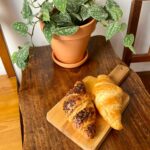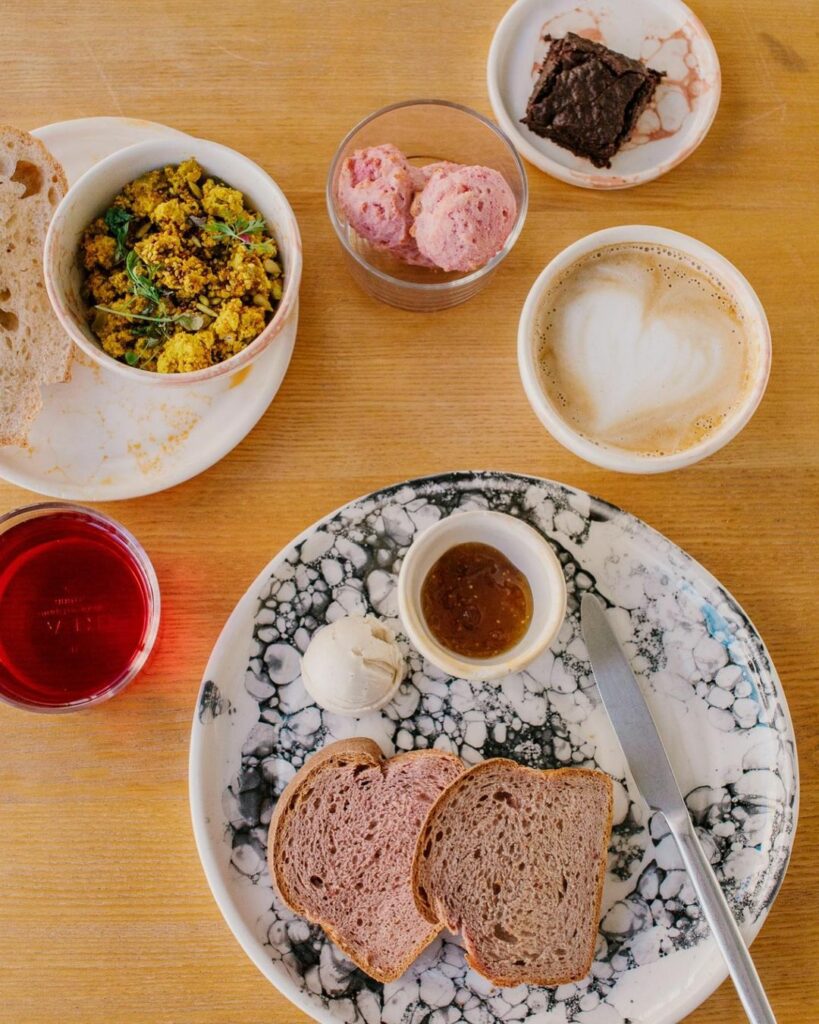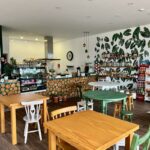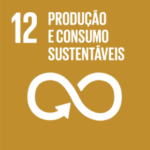
Gal. The vegan croissant café also fights waste
A vegan, specialty coffee shop that fights food waste every day, has opened in Anjos, Lisbon. Welcome to Gal. The team at Too Good to
We didn't find any happenings mapped to your criteria.
Try the traditional search to find articles not yet mapped with RUA.
We didn't find any happenings mapped to your criteria.
Try the traditional search to find articles not yet mapped with RUA.
We didn't find any happenings mapped to your criteria.
Try the traditional search to find articles not yet mapped with RUA.
We didn't find any happenings mapped to your criteria.
Try the traditional search to find articles not yet mapped with RUA.
The Pequeno Café Bistrô (Little Bistro Café) opened four years ago in Mercado de Arroios, in a small space – well suited to the name chosen – that fills up every day with those looking to eat well, but more than that: for those looking for a close relationship with the ones who serve them and with the ingredients on their plate.
The food is practically all vegan (with the exception of some sweets), made with mostly organic ingredients from small local producers. They make cheese, kombucha, brioche bread and pickles from scratch and are always innovating, not least because they only work with seasonal produce.
They recently opened a second space on Monte Olivete Street, in Príncipe Real, but the essence remains the same: to make Pequeno a home for those who visit.

Pequeno was born out of a dream, an idea nurtured and worked on for years. Before we were partners, we were friends, and together we built a restaurant that is the sum of several pieces of each of us. It’s a business, but it’s also ourpassion projectand the values we bring to Pequeno are the ones we carry with us on a daily basis. Perhaps the main thing is respect; between us, our employees, clients and partners, with the resources we work with and with the environment. Always with great respect, sincerity, empathy, and attentive service, we wanted to create a space that would be an extension of both our and our clients’ homes.
We believe that this can be seen mainly in three aspects.
At Pequeno we offer a meal, some food, a homemade dish that could have been served in our own homes, with the same organic products that we use to cook for our family. The central idea is this: to welcome people in both Pequenos and give them a meal or a refreshing snack that makes them feel full, whole and nourished, body and soul.
Our care for food starts with the partnerships we have with small producers, with organic products of the highest quality. We learn a lot from them and always try to understand what nature has to offer us, each time of year. But it doesn’t end there, this care is taken into our kitchen, with correct sanitation and preparation in order to bring out the ideal flavors and textures of each ingredient.
Care in choosing and sourcing products that clean and maintain our spaces is a guideline at Pequeno, meaning we do the basics very well. In our restaurants we use environmentally friendly liquid hand and dish soap, vinegar and alcohol for cleaning, we separate waste correctly and we always try to reduce our waste rate, which is already quite low. We are currently working with TooGoodToGo to dispose of excess but quality products, and we want to have our own compost bin when possible.

To begin with, we need to define what we mean by sustainability. Are we talking about sorting, choosing organic products, direct contact with suppliers or a sustainable work rhythm? When it comes to sustainability in general, it’s very difficult to come up with an answer. Choosing local and organic suppliers has a higher financial cost, but we believe we gain a lot: in product quality, in the energy we receive and circulate to customers, and in the network with partners who embrace, listen to and support us. So, paying more is not more sustainable? The financial outlay is offset by more sustainable human relationships.
We believe that adopting more sustainable practices is an “ant work”, something constant and continuous. We will always have something to improve, new habits that we can implement.
We value our Pequeno community very highly and with this we are increasingly seeking the closest possible relationship with all our suppliers – in this way we invest in our human and direct relationships, thus reducing the use of intermediary agents for all these inputs and materials to reach us.
Another concern is also the volume of packaging we generate – whether through the supplier/restaurant relationship or the restaurant/customer relationship. It’s a balancing act between the quantity of orders, the perishability of the food and our small stock space. As for our customers, it’s once again based on our established relationships. The regulars know that we love to assemble take-away dishes and drinks in jars, boxes, glasses and bottles that our customers bring with them.
We’ve also been paying close attention to our choice of cleaning and sanitizing products and we’re already making choices that are less harmful to the environment. It has been a current focus of ours to make greener choices, thus being able to align our discourse both in what we offer to our customers and with what we use for our internal use.
At Pequeno, we do everything our own way and don’t like to follow ready-made patterns. You can expect creative vegan food that tastes like home cooking. Everything is made from scratch by many hands, with influences from all the places over the world we’ve been to. In our home you’ll always get friendly, informal service, smiles and hugs. A restaurant made by people, for people; everything is very human, personal and sincere.
We always tend to focus on the differences, but in this case I prefer to start with the similarities. Opening our second space has been – and continues to be – a challenge. We need to balance the attention we give to this new child without losing the attention we give to the first. Despite being venues in different socio-economic realities, albeit in the same city, they both offer the same soul and energy. Perhaps the main common point is this circulating energy that allows us to create human bonds, a small community in each of the restaurants. Arroios is a space inside a market, on a busy street. It’s a space that has been around for four years and is still rooted in constant change and evolution. The one in Príncipe Real, on the other hand, is a baby with less than a year. We are still in the initial process, but we are living a different trajectory because we ourselves are different from what we were then. We have learned a lot from the opening of Arroios and this allows us to seek a healthier and more conscious evolution in Príncipe Real. Both spaces have different atmospheres, but they offer customers the energy of Pequeno: relaxed, with good food and spreading happiness to those who go there.


A vegan, specialty coffee shop that fights food waste every day, has opened in Anjos, Lisbon. Welcome to Gal. The team at Too Good to

Restaurants, bulk stores, baskets and second-hand clothes stores. There’s a bit of everything in Caldas da Rainha, an example when it comes to sustainable projects.

We don’t need to visit big cities to find good examples. In fact, closer contact with nature is the ideal setting to inspire those who

This article promotes an action that encourages the reduction of waste generation through prevention, reduction, recycling, and reuse.
➡️ To discover more businesses that are aligned with Sustainable Development Goal 12 “Sustainable Production and Consumption” click here.
➡️ For news, tips and interviews about this topic, click here.
➡️ Want to know more about the 17 United Nations Sustainable Development Goals? Click here
Esta publicação também está disponível em:
![]() Português (Portuguese (Portugal))
Português (Portuguese (Portugal))

